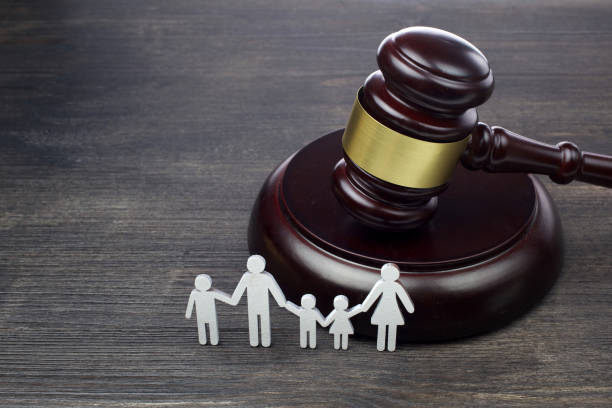Family courts will naturally require parentage evidence if they are determining who are the parents of a child during parenting matters. Proving parentage is important since parents need to pay child support for the growth and development of their child. Moreover, fathers need to pay for childbirth maintenance if they are the biological father of a child.
Childbirth maintenance is financial support for the mother if she is giving birth to a baby. This includes hospital bills and other necessary bills for the safe delivery of a baby. Aside from child support and childbirth maintenance, there are other family law matters that require evidence of parentage. Some of these family law matters include:
- Allocation of parental responsibility
- Whether equal shared parental responsibility or sole parental responsibility is needed during divorce proceedings
- Drafting parenting plans
- The two primary considerations of the child’s best interests. The first primary consideration of the child’s best interests is the child’s right to have a meaningful relationship with both parents and other significant people in the child’s life. While the second primary consideration is protecting a child from family violence, abuse, and/or neglect.
- Parenting arrangements
These family law matters may further escalate or cause confusion if courts cannot determine who are a child’s parents. That’s why it’s important to find out who a child’s legal/biological parents are in order to make family law proceedings proceed smoothly. This article will explain parentage evidence and relevant sections in the Family Law Act 1975.
Section 69V: Evidence of Parentage
According to Section 69V of the Family Law Act, the court may require an order for evidence of parentage. Here are some examples of parentage evidence:
- A child’s official birth certificate
- Hospital birth certificates
- Legal documents which state a person being the legal parent or legal guardian
- Adoption papers or foster care documentation
- Paternity tests
Section 69VA: Declaration of Parentage
According to 69VA of the Act, the courts may declare parentage to a parent. However, the person declared as a parent must provide the proper and necessary proof of parentage to family courts.

Section 69W: Court Orders For Parentage Evidence Testing
Section 69W outlines orders for carrying out parentage testing procedures which are referred to as parentage testing orders. Parentage testing orders are made in relation to a child, a presumed mother of a child, and any person who can help in determining parentage. A court may make a parentage order:
- On a court’s own initiative
- If a party to the proceedings applies for the order
- If an independent children’s lawyer (ICL) representing the child’s best interests applies for the order
Section 69X: Associate Orders With Parentage Testing Orders
Section 69X also outlines associated orders with parentage testing orders. These associated orders will:
- Enable the execution of a parentage testing procedure
- Make the parentage testing procedure more effective or reliable
- Require a person to undergo a medical procedure such as a father going through a paternity test
- Require a person to provide a bodily sample for parentage evidence (hair, urine, oral and nasal sample)
- Require a person to provide information that is relevant to their medical or family history
- Help with the execution of parentage testing procedures
Section 69XA: Parentage Testing for International Agreements or Arrangements
A court secretary may start or continue proceedings for a parentage testing order if it is necessary for international agreements or arrangements. Who is responsible for paying for parentage testing procedures necessary for international agreements and arrangements? Parties who are part of parentage evidence proceedings are responsible for paying as long as they:
- Contested the making of a maintenance assessment or court order for child support. This is on grounds that they are not the parent of a child
- Contested the enforcement of an overseas maintenance order, agreement, or assessment on the grounds of not being the parent of a child.
What happens if the person contesting the parentage in parentage testing proceedings is not the parent of the child? The court secretary may pay the costs of parentage testing orders necessary for international agreements or arrangements.
Section 69Y and 69Z: Orders Directed for Children Over and Under 18
According to Section 69Y, a person who is 18 or over is not liable to pay any penalty in relation to the contravention of a parentage testing order. In parentage testing procedures, courts will also order a child under 18 to undergo a medical procedure. However, they must get the consent of the following people:
- A parent of the child
- The legal guardian of a child
- A person who has responsibility for the child’s long-term or day-to-day care, welfare and development under a parenting order.
Section 69ZA: Liability of People Assisting in Parentage Testing Procedures
Any person or people aiding in parentage evidence procedures are not liable for any civil or criminal action. This is if either of the people mentioned gave consent to the person aiding with the procedure is:
- A parent of the child
- The legal guardian of a child
- A person who has responsibility for the child’s long-term or day-to-day care, welfare and development under a parenting order.
Section 69ZB: Regulations Governing the Conduct and Reporting of Parentage Testing Procedures
The courts may make provisions that relate to carrying out a parentage testing procedure under parentage testing orders. Moreover, courts may also prepare reports that have relevant information obtained as a result of carrying out parentage evidence procedures.
Section 69ZC: Reports With Information Treated as Evidence
Any reports containing information related to parentage testing are treated as evidence in legal proceedings. Courts may order the person/people who possess such evidence to appear in court and hand over or present the evidence. The family court may make an order under this section:
- On a court’s own initiative
- If a party to the proceedings applies for the order
- If an ICL representing the child’s best interests applies for the order.

Tackling Parentage Evidence With Legal Advice
It is important for putative parents to determine parentage since children need substantial and significant time with both of their parents. Moreover, biological parents have the duty and responsibility to provide child support and childbirth maintenance. Children would have a difficult time growing up if they don’t receive the proper emotional and financial support from both parents.
JB Solicitors is a family law firm that caters to various family law matters like parentage evidence. We believe that determining parentage is beneficial for a child. Hence, our family lawyers are here to provide advice that a person needs when determining the parentage of a child. Our mediation and arbitration services can help clients achieve legally binding agreements and decisions without court procedures.
Contact and consult with one of the best family lawyers today.
